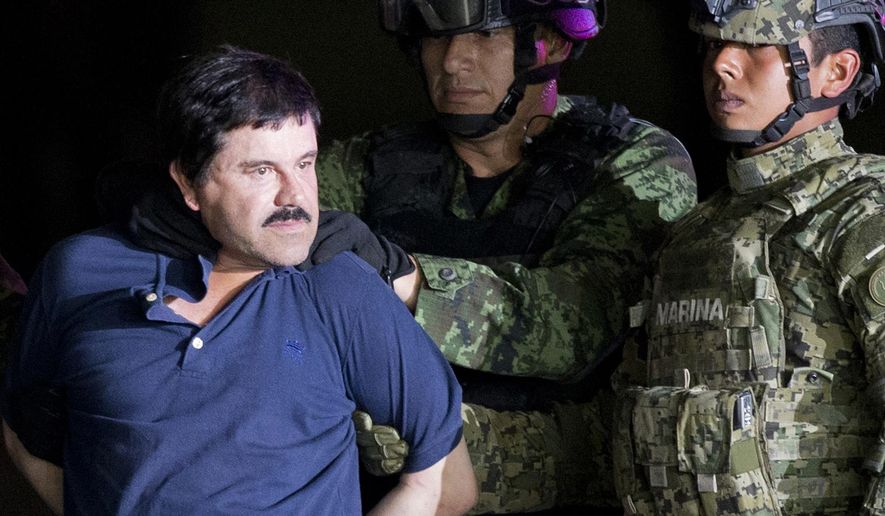Efforts to crack down on cartel-related violence in Mexico started off with a bang this year, with Sinaloa Cartel kingpin Joaquin “El Chapo” Guzman extradited to the U.S. to face criminal charges.
But despite the fanfare over the extradition, violence has surged in Mexico and this year is shaping up to be the country’s deadliest yet.
It’s unclear how many of the more than 30,000 homicides reported this year are cartel-related, but the violence has analysts concerned that the country’s “decapitation” strategy of taking out cartel leaders to topple violent criminal enterprises is failing.
According to a November report from the Congressional Research Service, Capitol Hill’s nonpartisan think tank, 107 of Mexico’s 122 most violent criminals had been removed — yet killings surged. That suggests that the leaders may not be as crucial to operations as the government hoped and that taking out those leaders won’t quell the violence.
“Organizations fragmented but did not disappear and, instead, experienced deadly combat until a new leader (or two) replaced the former boss resulting in new groups emerging,” the CRS said.
Attacking cartel leadership can disrupt the drug supply chain into the U.S., but that may create room for competitors to try to take control of supply routes, said Jeronimo Cortina, an assistant professor in the University of Houston’s political science department and its Center for Mexican American Studies.
“Once you take the CEO out, it does not mean the whole company is going down,” Mr. Cortina said. “Some cartels see that as an opportunity and want to do a ’hostile takeover.’”
The result is “an increasingly fragmented underworld,” said Alejandro Hope, a security analyst who has worked for Mexico’s civilian intelligence agency.
Not all of the smaller gangs may be focused on the drug trafficking activity typically run by the cartels, Mr. Hope said. Instead, some have made an industry out of extortion, kidnappings and theft.
The CRS report notes a number of factors could be driving this spike in violence, “including continuing fragmentation of the Sinaloa Cartel, competition to meet the burgeoning U.S. heroin demand, and ineffective law enforcement efforts against” transnational criminal organizations (TCO).
Smaller, localized gangs tend to be less organized as well and do not have the ability to challenge Mexican police or to corrupt segments of the government, Mr. Hope said.
“But they are more violent than their predecessors,” he said.
Fragmentation and lack of investment in the country’s security sector over the past few years may have created a “perfect storm” for the violence, Mr. Hope said.
“The resources aren’t there. The fire might be feeding on itself,” he said.
Still, scholars said the surging violence hasn’t spilled over into the U.S., and there hasn’t been an uptick in cartel-related mayhem.
“You might have organized crime on both sides of the border, but they don’t behave the same,” Mr. Hope said.
The Drug Enforcement Administration’s 2017 drug assessment notes that, unlike their counterparts in Mexico, criminal enterprise members in the U.S. “strive to maintain low visibility and generally refrain from inter-cartel violence so as to avoid law enforcement detection and scrutiny.”
“Mexican TCO-related acts of violence do occur in parts of the United States, particularly along the [southwestern border]; however, they are less frequent and mainly associated with trafficker-on-trafficker incidents,” the report states.
Mexico is taking steps to deal with the dramatic uptick in violence, and crime is expected to be a hot topic in the country’s presidential election next year.
One hope is Mexico’s interior security law, adopted this month, which sets out rules under which armed forces have the authority to battle organized crime through taking law enforcement action such as conducting raids and highway checkpoints.
Because of concerns about the law — critics have complained about the potential for human rights abuses — Mexican President Enrique Pena Nieto said he would send the law to the Supreme Court for review and wouldn’t enforce it until the court ruled on its constitutionality, Reuters reported.
• Andrea Noble can be reached at anoble@washingtontimes.com.




Please read our comment policy before commenting.